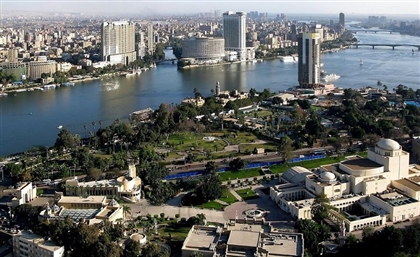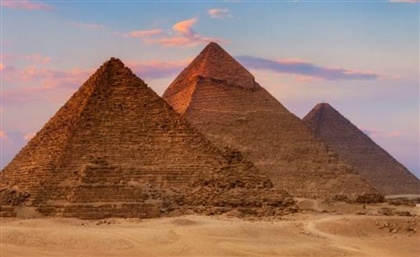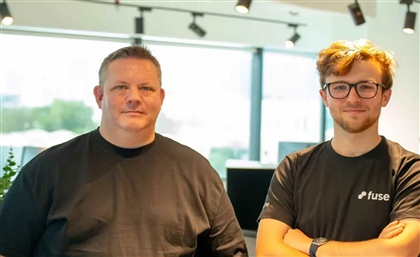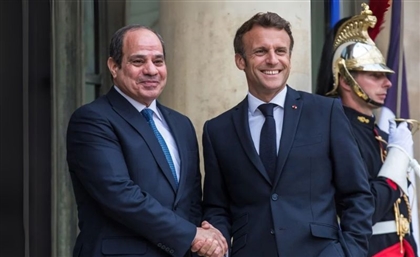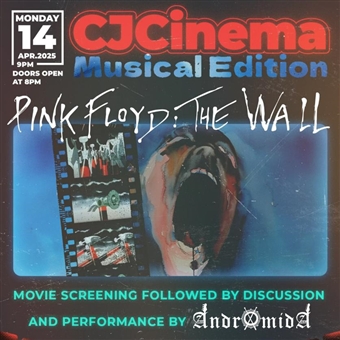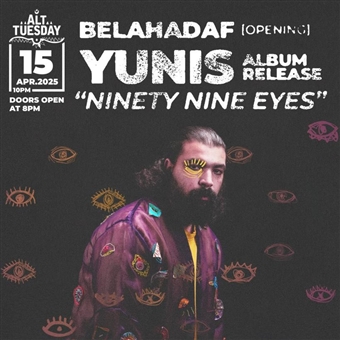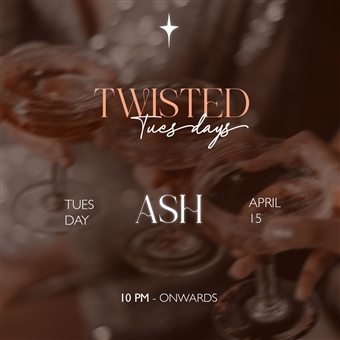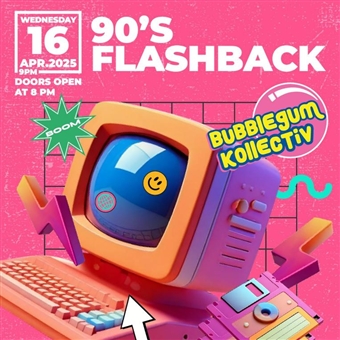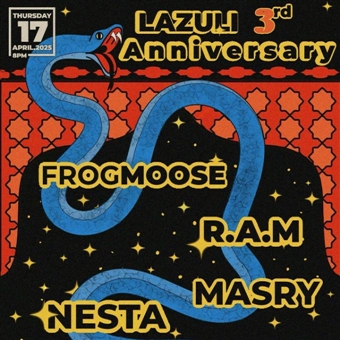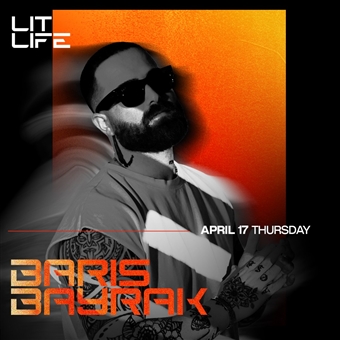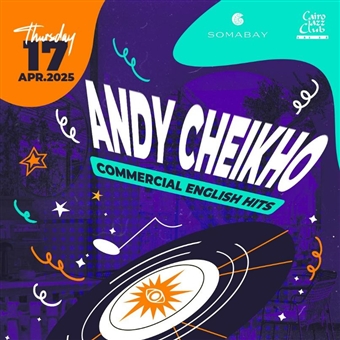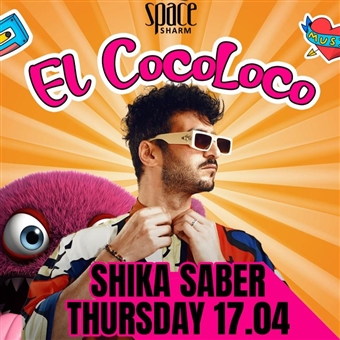Genesis: The Inception and Evolution of Egypt's House and Techno Scene
These relatively new sounds have been steadily spreading across the world since their inception in the early eighties. Seif Bibars tracks the origins of house and techno on an international level and compares them to their beginnings right here at home.
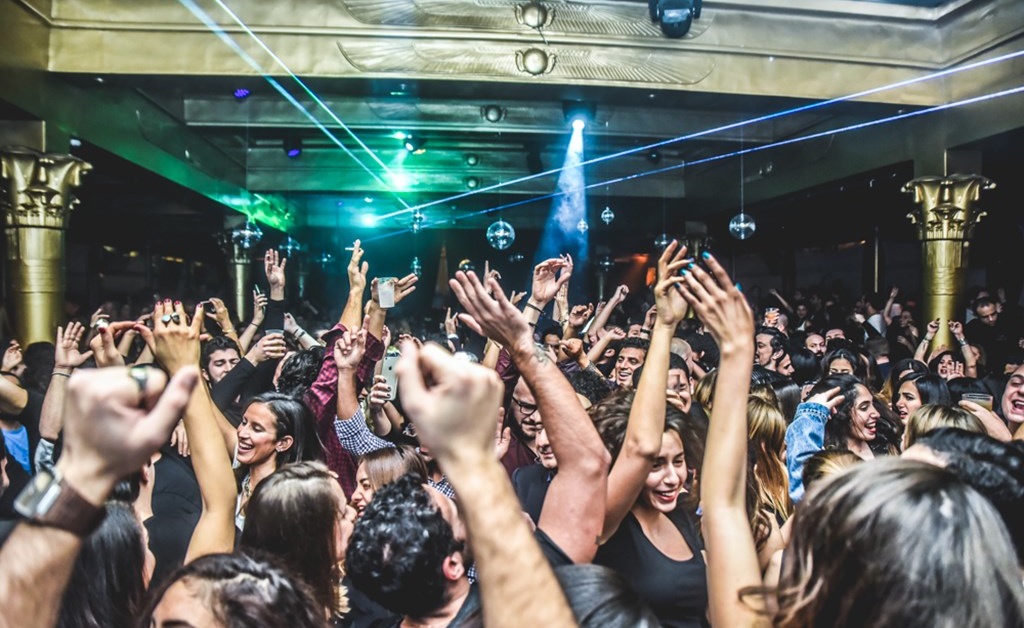
"At first the art of music sought and achieved purity, limpidity and sweetness of sound. Then different sounds were amalgamated, care being taken, however, to caress the ear with gentle harmonies. Today music, as it becomes continually more complicated, strives to amalgamate the most dissonant, strange and harsh sounds. In this way we come ever closer to noise-sound." – Luigi Russolo, The Art of Noises (1913)
Juan Atkins, Derrick May, and Kevin Saunderson are the first pioneers of techno. It's the early eighties in Detroit; Atkins and Richard Davies - better known at the time as 3070 - started releasing under the guise, Cybotron, and this marked the birth of techno. In Detroit, techno music was mainly made by black, gay men. In Chicago, Frankie Knuckles (The Godfather of house) started a club called The Warehouse - how house music got its name - where he spun old disco and funk with newfound electronic sounds, and that was the start of house music. Much like the techno scene in Detroit at the time, house in Chicago was also made by gay, black men and these parties were, at the time, fuelled by a lot of acid. When asked in an interview to explain what his club was like, Knuckles said, "The Warehouse: it was predominantly black, predominantly gay, age probably between 18 and maybe 35. Very soulful, very spiritual, which is amazing in the mid-west because you have those corn-fed mid-western folk that are very down to earth." The interviewer asked about the drugs that fuelled the scene at the time, to which Frankie replied, "Probably a lot of acid. A lot of acid."
All of this information is available on the Internet, and might be useful to some for learning about the origins of these genres, but what you won’t find on the Internet is the origins of the rave movement in Egypt. The year was 1997 when what many people consider the first true rave took place. Thomas Penton was booked to play Cairo; the party was not the first time an Electronic artist played Cairo, but it was the first party where most of the attendees were on ecstasy, making it the first true rave to hit our city. The Egyptian version of the UK’s Summer of Love soon followed - at some point during the summer of 1988, parties happening in the UK were flooded with ecstasy, powered by the new underground music played by the American DJs that dominated England's rave scene at the time - and by the year 2000, a small congregation of local Egyptian partygoers, promoters, and DJs played shadow games with the local authorities who, at the time, weren’t giving any permits for the then-unknown DJ party.
It was truly underground; the Internet hadn’t permeated our lives yet, and these early parties depended primarily on word of mouth and printed material to market themselves. Rudimentary flyers were made by hand, xeroxed, and handed out to potential ravers. A lot of us heard this phrase at school or university or at Gezira club: "Bit rayev ya man?" To find directions to the party you would have to look for clues, either spray-painted on the walls of Mansouria's villas when the party was in that area - a lot of them were - or you would look in the skies over Sakkara for the 3000w Batman-style sky-beam - if the promoters had enough money. Those days were beautiful; no couples policy, no underage policy, and most importantly no expensive entry fees or overpriced drinks. Some of these parties, like in Agamy’s Summer Moon, cost 50 LE for a local DJ party and 150 LE for a multiple international artist lineup.
In Egypt, like the rest of the world, the early days of these movements are noted by those who attended them and who are still partying now as the 'golden days' of the rave scene in Cairo; although the number of parties was limited to maybe five a year, they were on par with any international city at the time in quality of music, bookings, and attendees. When Paul Oakenfold played Mohamed Aly Club, a group of Cairene ravers that were in France on vacation at the time cut their trip short to be there (that's how good the parties were at the time). During these couple of years in Sharm, a Godskitchen showcase took the Sheraton by storm, and on that same week Cream Fields showcased at Sanafir. The year after that, Satoshie Tomie played Mohamed Aly club - that was in 2003 and that party was the beginning of the end, it all went downhill from there.
Since the turn of the millennium, Nile Gate (a venue in Maadi) was the hottest rave club in the region. It was shut down because a guy with friends in the press was refused entry and as revenge he had his friends publish an article about how the place was a cesspool of drugs, under age drinking, and other nasty things (which were obviously true). Sakkara Country Club saw bookings like Sonique, Seb Fontaine, Harry Romero, Lemon 8, Eric Entrena, and many, many more. Andrea Maryouteya played host to many fantastic nights; Sander and Nick Warren, Balthazar, Dave Seamen, and several others. In Movenpick 6th Of October, Steve Lawler's gig was one of the best parties music-wise to ever hit the city; Deep Dish at the same venue nearly topped the latter if it hadn't been for problems on door. In Heliopolis, Decarma - later changed its name to Heavens - saw several amazing bookings like Trance god Marco V. Alexandria wasn't without its contributions - from the get-go Junior and GoGo held their massively successful House Nation events that had originally started in Sharm. The list goes on and on, all these parties were attended by the same tight-knit group of friends; everyone knew each other and it was considered the best era in Egypt's then burgeoning rave scene. All these parties had something in common; they weren't organised by big events companies like now, they were independent efforts. At the very start, these bookings were confirmed at least six months ahead, and their fees were collected from the attendees by the kids that were organising the gig - you would sometimes never receive a ticket or a proof of payment, but you knew that your money was safe. The mind altering substances used to elevate the mood at these events were sourced per event - in the same manner as the fees for the bookings, some kids would start collecting money until they had enough for flights and would travel to Europe and back. Each party would have a stock of, umm cand-E, that would be brought in from abroad specifically for that event.
Worldwide, the movement that was started by gay men and women of colour has been taken over by straight white kids who are not related to the original scene in any way. According to Resident Advisor, Loren Granic stated, "We're currently experiencing a total mainstreaming of dance music in America." He elaborated, "Many of these newcomers are straight/white kids who are very far removed from the LGBT community, despite fist-pumping by the millions to a music that was born from gay people of colour sweating their asses off at 5 AM in a Chicago warehouse. It's easy for us to dismiss this as a corruption of the music we hold so dear by charlatans and assholes, but many of the newcomers will be drawn into the music for life, and I think it's important that we highlight the role that the gay community played and that we educate new fans of dance music to the ideals of community, equality, and diversity that were so crucial to Dance music's DNA from the beginning." The parties that were thrown in dilapidated warehouses and empty buildings that were the start of house/techno still exist, but other types of parties surfaced, like the super club and the mega festival. Hordes upon hordes of white kids, fist-pumping to a degenerated form of electronic music, have infiltrated the scene and led to the sublimation of the raw, socially unaccepted sound of the past into a more presentable form. Instead of the dark, tiny warehouses by night, huge open fields by day; instead of gay men and women on acid, straight white kids on Molly.
The same thing happened in Egypt - with a different context, of course. Instead of the small, secret get-togethers in abandoned villas and remote country clubs, mega parties with hordes of attendees began to take place. Instead of the peace, love, unity, and respect, it turned into a drug-fuelled ego test, with the P.L.U.R motto replaced by T.S.E.T (tanaka, sharmata, egoism, and more tanaka). Instead of a very limited supply of drugs in the hands of well-informed individuals, only providing to their friends and fellow revellers with the aim of elevating the mood (not getting rich), it became an endless sea of drugs, where nearly everyone at a party is doing it. Now that would be fine if the crowd was made up of people who knew what they are doing, but that’s not the case; it’s mostly kids who’ve never done a drug in their life and are starting off on hardcore substances like ecstasy, cocaine, and acid, that they find with commercial dealers who are attempting to get rich selling these substances, and hence will sell it to anyone. Instead of the tight knit groups of friends and acquaintances, the crowd has turned into an endless ocean of misinformed, experience-hungry zombies, who are in no way related to clubbing, or even interested in the music itself; they only show up because they hear that that party or that this type of music is 'in' or 'hip', and that being there is the cool thing to do.
Back in the day, parties in Egypt weren't concerned with how much money you had; you were only allowed to get in if you were in the know. Getting into a party shouldn't be a matter of rich or poor, but only a matter of if you're informed or not; are you part of the subculture? The biggest factor detrimental to the whole is the inebriation of a new clubber every minute, either by misinformed idiots who are passing on the information wrongfully like it was passed on to them, or by cash-hungry drug dealers who are using the music to market the drugs. “Ebla3 deeh, weh shaghal el set dah, w e3mil rasak keda ma3 el mazzika,” said many a drug dealer to their unwitting customer, and the customer - intoxicated by MDMA's happiness-inducing effect - always comes back for more. All of these parties are now licensed and feel too plastic, more like a sought-after commodity where, like any product, its price is controlled by supply and demand and since the demand is really high and the supply limited, the prices are increasing every year. The door policy is primarily concerned with whether you have a girl with you (remember that this type of party was made by gay men for gay men) and if you're able to pay the hefty entrance fee.
Promoters don't book relevant artists because, as with the following of any trend, one must wait for the trend to become trendy before the bulk of the crowd starts following it. The relevant bookings that will please the true music heads will confuse the rest, and the ear-pleasing bookings that the majority will enjoy will be revolting to those who are musically inclined. The other problem is the local DJ, who, interested in pleasing the crowd, will only play the sounds that will go down well with them and therefore the venue owners, ensuring that they will be booked again - which in turn limits what they play.
Between the truly sincere promoters and the truly talented DJs playing tomorrow's music for us today, a handful of people still exist who remain bent on creating a sustainable - and non-commercial - clubbing environment here in Egypt. What is expected of you as a true fan - if you weren't a true fan you probably wouldn't be reading on until now - is to always show love and go support those who are truly sincere in creating a sustainable clubbing scene in Egypt. After all, if we don't do that, and those promoters give up completely, we will be left with what commercial parties will remain, and we'll have to make do with what we're dealt each weekend in terms of bookings - or forfeit clubbing on our weekends completely and go back to how it was before the revolution: only commercial parties, with those interested in underground parties having to resort to clubbing abroad, spending our weekends drinking away our sorrows in house parties and pubs around town.
"I'm a DJ who plays for tomorrow, fuck today, if you play for today you're yesterday by the time you've finished your set, you're a disc jockey, fuck disc jockeys, I'm a DJ! Tomorrow's beats are always the most interesting." – Doc Scott
- Previous Article UberSELECT Offers An Even Classier Experience
- Next Article 10 Strictly Egyptian Moustaches That Will Inspire You This Movember






